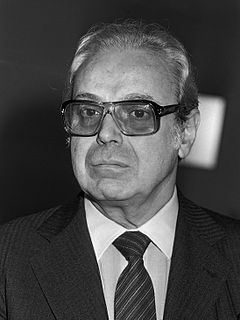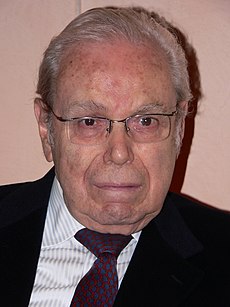A United Nations General Assembly Resolution is voted on by all member states of the United Nations in the General Assembly.
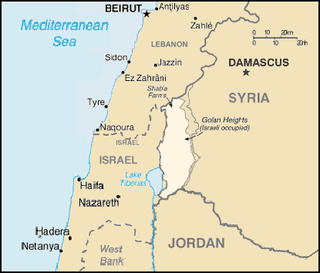
United Nations Security Council resolution 497, adopted unanimously on 17 December 1981, declared that the Israeli Golan Heights Law, which effectively annexed the Golan Heights, is "null and void and without international legal effect" and further calls on Israel to rescind its action.

United Nations Security Council resolution 520, adopted unanimously on 17 September 1982, after the assassination of Lebanese President Bashir Gemayel and reaffriming resolutions 508 (1982), 509 (1982) and 516 (1982), the Council demanded that Israel withdraw immediately from Lebanon, and that Lebanese sovereignty be respected in order to restore a stable government in Lebanon.

United Nations Security Council Resolution 402, adopted on December 22, 1976, after hearing from the Minister of Foreign Affairs for Lesotho, the Council expressed concern at South Africa's decision to close the border with Lesotho in many areas in an attempt to pressure the country to recognise the "independence" of the bantustan Transkei. After recalling previous resolutions, the Council praised Lesotho for not recognising Transkei and stated it will organise economic assistance to the country from the organisation itself and other countries to help it overcome the blockade by South Africa.

United Nations Security Council resolution 459, adopted on 19 December 1979, after recalling resolutions 425 (1978), 426 (1978), 427 (1978), 434 (1978), 444 (1979) and 450 (1979) and considering the report from the Secretary-General on the United Nations Interim Force in Lebanon (UNIFIL), the Council expressed anxiety about the future of the Force, citing threats to its freedom of movement, security and safety of its headquarters.

United Nations Security Council resolution 483, adopted on 17 December 1980, after recalling resolutions 425 (1978), 426 (1978), 427 (1978), 434 (1978), 444 (1979), 450 (1979), 459 (1979), 467 (1980) and 474 (1980) and considering the report from the Secretary-General on the United Nations Interim Force in Lebanon (UNIFIL), the Council noted the continuing need for the Force given the situation between Israel and Lebanon.

United Nations Security Council Resolution 499, adopted unanimously on December 21, 1981, after noting the death of International Court of Justice (ICJ) judge Abdullah El-Erain, the Council decided that elections to the vacancy on the ICJ would take place at the Security Council and at the General Assembly's thirty-sixth session.

United Nations Security Council resolution 500, adopted on 28 January 1982, after considering an item on the agenda of the Council and given the lack of unanimity amongst its permanent members, the Council decided to call an emergency meeting of the United Nations General Assembly to discuss the Israeli occupation of the Golan Heights.
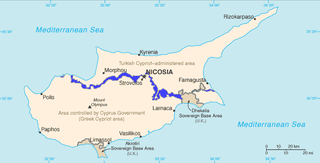
United Nations Security Council resolution 510, adopted unanimously on 15 June 1982, noted a report of the Secretary-General that, due to the existing circumstances, the presence of the United Nations Peacekeeping Force in Cyprus (UNFICYP) would continue to be essential for a peaceful settlement. The Council expressed its desire for all parties to support the ten-point agreement for the resumption of intercommunal talks, and asked the Secretary-General to report back again before 30 November 1982 to follow the implementation of the resolution.

United Nations Security Council resolution 511, adopted on 18 June 1982, after recalling previous resolutions on the topic, particularly resolutions 508 (1982) and 509 (1982), and considering a report from the Secretary-General on the United Nations Interim Force in Lebanon (UNIFIL), the Council decided to extend the mandate of UNIFIL for another two months, ending on 19 August 1982.
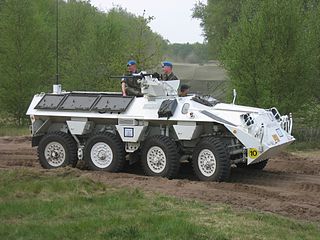
United Nations Security Council resolution 523, adopted on 18 October 1982, after recalling resolutions 425 (1978), 426 (1978), 508 (1982), 509 (1982) and 519 (1982), as well as studying the report by the Secretary-General on the United Nations Interim Force in Lebanon (UNIFIL), the Council decided to extend the mandate of UNIFIL until 19 January 1983.

United Nations Security Council resolution 527, adopted unanimously on 15 December 1982, having heard representations from Moshoeshoe II of Lesotho, the Council condemned, alongside a General Assembly resolution, an attack by South Africa on Lesotho, resulting in damage and the deaths of 40 people.

United Nations Security Council Resolution 528, adopted on December 21, 1982, after the General Assembly passed Resolution 3190 extolling the virtues of expanded working languages, the Council decided to include Arabic among the working languages of the Security Council.

United Nations Security Council resolution 529, adopted on 18 January 1983, after recalling resolutions 425 (1978), 426 (1978), 508 (1982), 509 (1982) and 519 (1982), as well as studying the report by the Secretary-General on the United Nations Interim Force in Lebanon (UNIFIL), the Council decided to extend the mandate of UNIFIL until 19 July 1983.

United Nations Security Council resolution 768, adopted unanimously on 30 July 1992, after recalling previous resolutions on the topic including 501 (1982), 508 (1982), 509 (1982) and 520 (1982) as well as studying the report by the Secretary-General on the United Nations Interim Force in Lebanon (UNIFIL) approved in 426 (1978), the Council decided to extend the mandate of UNIFIL for a further six months until 31 January 1993.

United Nations Security Council resolution 803, adopted unanimously on 28 January 1993, after recalling previous resolutions on the topic including 501 (1982), 508 (1982), 509 (1982) and 520 (1982) as well as studying the report by the Secretary-General on the United Nations Interim Force in Lebanon (UNIFIL) approved in 426 (1978), the Council decided to extend the mandate of UNIFIL for a further six months until 31 July 1993.
United Nations Security Council resolution 852, adopted unanimously on 28 July 1993, after recalling previous resolutions on the topic including 501 (1982), 508 (1982), 509 (1982) and 520 (1982) as well as studying the report by the Secretary-General on the United Nations Interim Force in Lebanon (UNIFIL) approved in 426 (1978), the Council decided to extend the mandate of UNIFIL for a further six months until 31 January 1994.

United Nations Security Council resolution 938, adopted on 28 July 1994, after recalling previous resolutions on Israel and Lebanon including 501 (1982), 508 (1982), 509 (1982) and 520 (1982) as well as studying the report by the Secretary-General Boutros Boutros-Ghali on the United Nations Interim Force in Lebanon (UNIFIL) approved in 426 (1978), the Council decided to extend the mandate of UNIFIL for a further six months until 31 January 1995.

United Nations Security Council resolution 1006, adopted unanimously on 28 July 1995, after recalling previous resolutions on Israel and Lebanon including 501 (1982), 508 (1982), 509 (1982) and 520 (1982) as well as studying the report by the Secretary-General Boutros Boutros-Ghali on the United Nations Interim Force in Lebanon (UNIFIL) approved in 426 (1978), the Council decided to extend the mandate of UNIFIL for a further six months until 31 January 1996.

